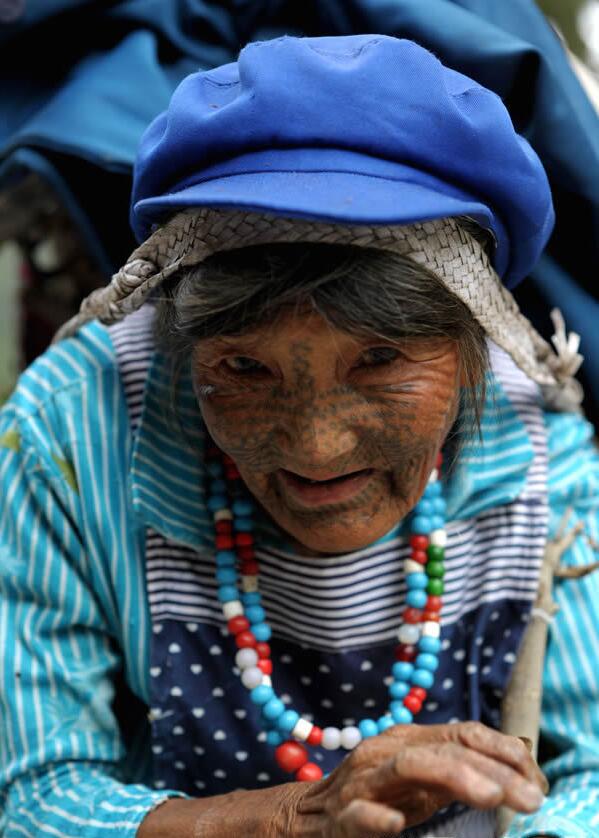It is very common to see people sporting tattoos on their bodies. But have you seen people with tattoos on their faces? In a village in southwest China’s Yunnan province, it is a tradition.The women of the Derung ethnic group carried on this art for hundreds of years, but fewer than 30 Derung women are still alive today.

Face-tattooed women on changing ethnic tradition
This is a symbol of the Derung ethnic culture. Locals say the practice of face-tattooing has been a tradition here for more than 300 years.
“It was my husband who asked me to tattoo my face. He thought it was beautiful. And it seemed a better choice for all the women back then,” said Dan Ji, villager of Longyuan, Gongshan County.
Dan Ji’s case was rare among the Derung women. Most got tattoed before marriage, and it was hard to imagine that a woman without facial tattoos could even get married. The practice gradually came to an end, following the founding of new China in 1949.
“Almost all of the tattooists here have passed away. And now there are no regulations requiring women to have their faces tattooed unconditionally. This allows the next generations to stay beautiful, unlike us, who have these tattoos on our faces our whole lives,” said Jiang Guiqing, villager of Longyuan, Gongshan County.
Derung women used to have their faces tattooed at the age of 12 or 13. They would use bamboo needles to puncture the skin and color it with soot and herbal extracts. It remains debatable whether this was considered as a beauty treatment in the days of old.
The reasons given to explain this tattooing tradition are varied. Some say it may have helped women avoid sexual attacks or enslavement by making them look unsightly. Others believe the tattoos were meant to enhance beauty.
“I don’t think it looks beautiful. It was okay for me, since there weren’t many mirrors available back then. But now, when I look myself in the mirror, I see my whole face in black. It’s not beautiful,” said Dan Ji.
“If technology can help me remove the tattoo from my face, I would like to do that. I think face-tattooing is a bad custom. We were obliged to have it back then,” said Jiang Guiqing.
Experts say about 300 Derung women with facial tattoos were still alive in the 1960s. Now, fewer than one in ten are still alive. The practice serves as a window into the Derung’s unknown past, and yet also as a legacy destined to disappear.















